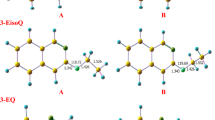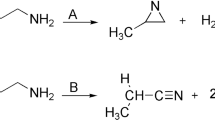Abstract
THE writer of the section of the Annual Reports of the Chemical Society, which has just been published, tells us that the results of the investigations of Hinshelwood and his co-workers on one hand, and of myself and my co-workers on the other, lead to the conclusion that the decomposition of acetaldehyde is influenced by chain mechanism at low temperatures but not at high temperatures. Whether the conclusion could justly be drawn from the published information available to the writer of the section of the Report is a matter of opinion; but it appears to be negatived by the results of more recent work.
This is a preview of subscription content, access via your institution
Access options
Subscribe to this journal
Receive 51 print issues and online access
$199.00 per year
only $3.90 per issue
Buy this article
- Purchase on Springer Link
- Instant access to full article PDF
Prices may be subject to local taxes which are calculated during checkout
Similar content being viewed by others
Author information
Authors and Affiliations
Rights and permissions
About this article
Cite this article
TRAVERS, M., SEDDON, R. Thermal Decomposition of Acetaldehyde and Ethylene Oxides: Existence of Short-Lived Intermediates. Nature 137, 906–907 (1936). https://doi.org/10.1038/137906b0
Published:
Issue Date:
DOI: https://doi.org/10.1038/137906b0
Comments
By submitting a comment you agree to abide by our Terms and Community Guidelines. If you find something abusive or that does not comply with our terms or guidelines please flag it as inappropriate.



